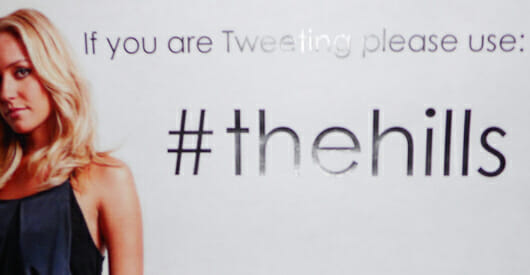
Do you use Twitter hashtags? Those funny, frequently unreadable letters with a “hash” (# or pound sign) in front? You should. Here’s why.
Hashtags are tags we add to our own content on Twitter. They:
- become a form of metadata for tweets
- self-identify the person tweeting as a member of the group of people who use that tag
- are useful for search, for research, for meeting people with shared interests, and for gathering community
There are different kinds of hashtags:
- Trending topics like #grammys
- Breaking news like #jan25 for Cairo protests
- Regular real-time Twitter chats like #writechat and #kidlitchat
- Subject interests like #green for ecological subjects or #accounting
In the same way that we assign categories to our book descriptions, which become part of the book’s metadata, and the way we assign categories to blog posts or articles, hashtags help find and organize data.
They are frequently used in combinations, which result in interesting long-tail keywords you can explore in real time, like this one I made up and then searched for and found: #accounting #jobs #memphis
Here’s another tweet loaded with keywords as hashtags. Searches on any of these terms will retrieve this tweet, and a click on any of the hashtags will pull up all the recent posts with the same tag applied:
Roll Your Own Metadata—Tips
Since you’ll be making up hashtags before long, here are some tips:
- Don’t use spaces, they will break your hashtag
- Hashtags are converted to links when published, and are clickable for an instant search
- Most useful and long-lasting hashtags are short and informative like #ePrdctn for discussions about ebook creation
You can find hashtags that relate to subjects you’re studying, or in your niche various ways.
- Search on search.twitter.com then look in search results for tags
- Use tagdef.com to find out meaning of unknown hashtags
- Use hashtags.org or trendistic.com to see how active the #hashtag is
Use Hashtags for the Best of Twitter
Twitter is a unique environment that, more than any other social media utility, can be used in almost endless ways by anyone who wants to take advantage of the tools and the audience gathered there. During the last Super Bowl, Twitter users set a record sending over 4,000 tweets per second.
Understanding how to use this connection to the real time neural network can only help your platform-building efforts.
- On Twitter you can meet peers and influencers in your niche more easily than in other environments
- Rather than selling direct, use a “search and connect” strategy to find partners, service providers, cross-promoters and readers interested in your subject
- Connect to other people’s networks by making contact on Twitter, then use your blog or website to promote your books or other programs. Use Twitter to drive traffic, use your blog to receive it.
Hashtags are one of the best tools to slice through the stream of tweets to find exactly what you want. They allow us to congregate and have communal discussions in the midst of a storm of traffic traveling in other directions. Use them and prosper.
Photo by emilydickinsonridesabmx






